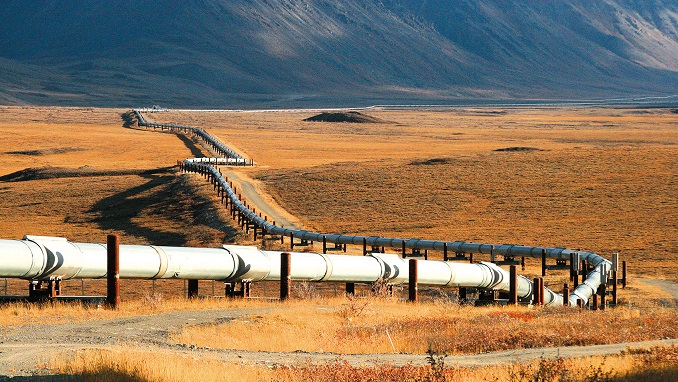Failure of Gas Pipeline: What Causes It and How to Respond
- Time of issue:2021-08-18 10:14:06
- Views:
Failure of Gas Pipeline: What Causes It and How to Respond
- Time of issue:2021-08-18 10:14
- Views:

With a continuous structure change in the energy industry in China, a series of national key gas projects have been promoted, such as “West-East Natural Gas Transmission”, “Sichuan-East Natural Gas Transmission”, etc. It demonstrates the breakthrough in gas engineering in China. Under the rapid city-gas development, a range of infrastructure construction of urban energy distribution has been strengthened. The rate of gas accidents in China remains high due to various factors. The failure of gas pipelines is one of the primary causes of gas accidents. A gas accident will impact the daily life and work of the residents and even cause serious safety accidents. Great importance must be attached to the threat of gas accidents.
What causes the failure?
There are many failure types of gas transmission and distribution. It includes pipeline ruptures, leaks, blockages, valve opening and closing problems, etc. In the current troubleshooting of gas pipelines, the technicians focus on the pipeline leakage, but not the pipeline blockage. The impurities contained in different types of gas vary. Substances such as tar, soot, sulfide, and nitrogen oxide are impurities found in gas. With the increasing service life of the pipe networks, the ever-increasing foreign matters in the pipe will cause clogging of the pipeline. Once a gas pipeline is blocked, the pipe diameter reduces, and the resistance to the gas transportation in the gas pipeline will increase. The gas supply pressure of the pipe network is reduced in the case of any bad situations affecting the life of residents due to large-scale gas outages. So, it is of great significance to study the troubleshooting techniques of blockage for gas pipe networks. Gas pipe network operations are now also including pipeline and blockage troubleshooting.
Fault types of gas pipelines
At present, the major blockage causes of gas pipe are as follows:
First, moisture in the pipeline network comes from two sources. The first is the water formed by water vapour condensation, and the second is the water that penetrates deep inside the pipe. The pipe blocked by standing water can be damaged due to various factors. If the water in the gas pipe is not drained in time after the water injection pressure test, it will also lead to blockage in the gas pipe. The water will reduce the efficiency of gas transmission and lead to the rupture of the gas pipe.
Second, impurities will lead to clogging. Rust, dust, and tar are the main impurities in gas pipelines. The gas with its dust and tar is deposited at the bottom of the pipe as it is transported. Iron rust is generated due to corrosives in the pipeline. Rust is caused by environmental factors. As long as the pipes are in a dry environment, rust is not generated. The rust will cause strong corrosion on the gas pipe, then the impurities in the gas pipe will lead to blockage. Besides, the equatorial diameter of the gas pipe may be changed, affecting the roughness of the gas pipe.
Third, the coal gas gels will cause blockage. There are two types of coal gas gels, liquid phase gels and gas-phase gels. Gas-phase gels are formed by some polymerization reactions of unsaturated gas-phase hydrocarbons under the action of the oxides. Small gas-phase gels flow with the coal gas and deposit in the pipe, causing a blockage. Liquid-phase gels are formed by the oxidative polymerization of hydrocarbon substances. The particles of the liquid phase gels are large. So they only can be sedimented in the branch pipes of the pipeline and block the gas pipes.
Last, hydrate will result in blocking. Generally, a hydrate is a type of solid material formed during the high-pressure transmission of natural gas, and it can also lead to blockage of the pipeline. It is formed by the reaction of water and hydrocarbons contained in natural gas under certain temperature and pressure conditions. More dense hydrates in the pipeline will reduce the transmission capacity of the pipeline under low temperature conditions, and lead to total blockage of the pipeline.
How to respond?
Pipeline cleaning
There are two main ways of pipeline cleaning, which are chemical cleaning and mechanical cleaning. Chemical cleaning is the process of reacting and dissolving substances from the pipe wall in the pipe with the chemical substances. For example, you can use the tetrahydronaphthalene to dissolve naphthalene with coal tar, or adopt the strong alkali to removing the rust, etc. Mechanical cleaning is the process of sweeping the adhesion on the wall of the pipe with a machine. For example, you can clean and scrap the material adsorbed on the gas pipe with the cleaning machine. Sometimes air blowers or water are also used to clean the gas pipes.
Water blocking treatment
Use special pumping equipment for gas pipelines to remove the water from the pipes. The gas content in the gas pipeline needs to be measured before pumping. The trend of water content in the gas pipeline needs to be estimated and predicted. And you need to arrange the pumping cycle so that the water in the tank can be emptied in time. If a blockage occurs, the location of the blockage should be the lowest part of the pipe. Then you need to adjust the slope of the gas pipe. The water should be pumped out by drilling a hole above the gas pipe. In the event of water seepage, find out the seepage location. Repair the point with the chemical adhesive plugging method. You can choose the adhesive with good water resistance performance.
Ice blocking treatment
For ice blockage due to water accumulation, the drying method usually is applied. You can purge the pipeline with dry air or dry it through balls. And ice blockage is caused by hydrates, so you need to take a regular test and drain water in the gas pipeline.
In sum
To sum up, with the continuous development of gas engineering, fault diagnosis and treatment technology in gas engineering has been advanced. The failure of the pipeline network is an important reason affecting the operational efficiency of gas engineering. The research and application of its diagnosis and treatment technology are necessary. So, it is necessary to improve and innovate the fault analysis and processing technology of pipeline networks based on the existing technology and to analyze the causes of gas faults in detail and propose solutions. Thus the operation efficiency and quality of gas pipelines can be improved, providing a guarantee for the life and work of urban residents and promoting the development and progress of China's social economy.
Relevant Information
Zhengzhou Anran I&C Technology Co.,Ltd.
Tel: 0086-371-68629564
E-mail: global.sales@zzanran.com
Address: The National University Science Park, No.11, Changchun Road, High&New Technology Development District, Zhengzhou
Copyright Zhengzhou Anran I&C Technology Co., Ltd.




 0086-371-68629564
0086-371-68629564

 Message
Message 




